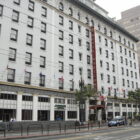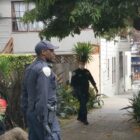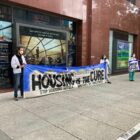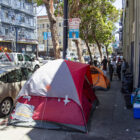Homelessness
FEMA to Retroactively Fund All Shelter-in-Place Hotel Costs
The Federal Emergency Management Agency will retroactively reimburse states 100% of the cost for shelter-in-place hotels, dating back to January 2020, the White House announced Tuesday.
The announcement comes less than two weeks after the Biden administration pledged to fully fund hotels used to house homeless people over 65 or with compromised health going forward. Previously, municipalities were responsible for 25% of the costs.
















